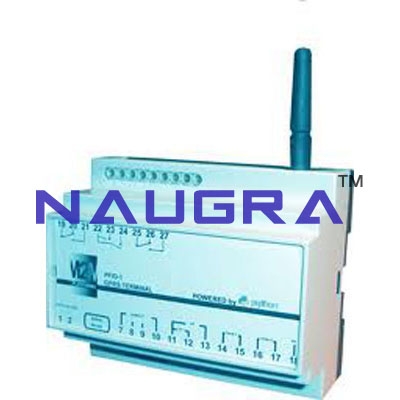Flow Level Control Demonstration Unit- Engineering Lab Training Systems.
Technical Description
The training system provides a
comprehensive experimental introduction to the fundamentals of process
control using an example of combined flow and level control. The level
and flow rate can be regulated individually and as a cascade. In cascade
mode the level is the primary controlled variable. The flow control
then provides optimum adjustment of the controlled variable to the
reference variable (setpoint).
All components are clearly laid out
on a vertical panel. The large-format process diagram provides an aid to
understanding. A pump transfers water from a storage tank into a piping
system which contains a variable-area flowmeter. From there the water
passes into the transparent process tank. The level is measured by an
electronic pressure transducer installed at the base of the process
tank. The controllers used are two state-of-the-art digital industrial
controller. The actuator in the control loop is an electromagnetic
proportional valve. Ball valves in the tank outlet and in the pipe
system enable defined disturbance variables to be generated. The
controlled variable X and the manipulating variable Y can be tapped as
analogue signals at lab jacks. This enables external recording
equipment, such as a plotter or an oscilloscope, to be connected.
An
instrumentation and control software with interface module (USB) is
available as an accessory. This enables the key process variables to be
represented, and control functions executed.
The well-structured
instructional material outlines the technological fundamentals and
provides a step-by-step guide through the experiments.

